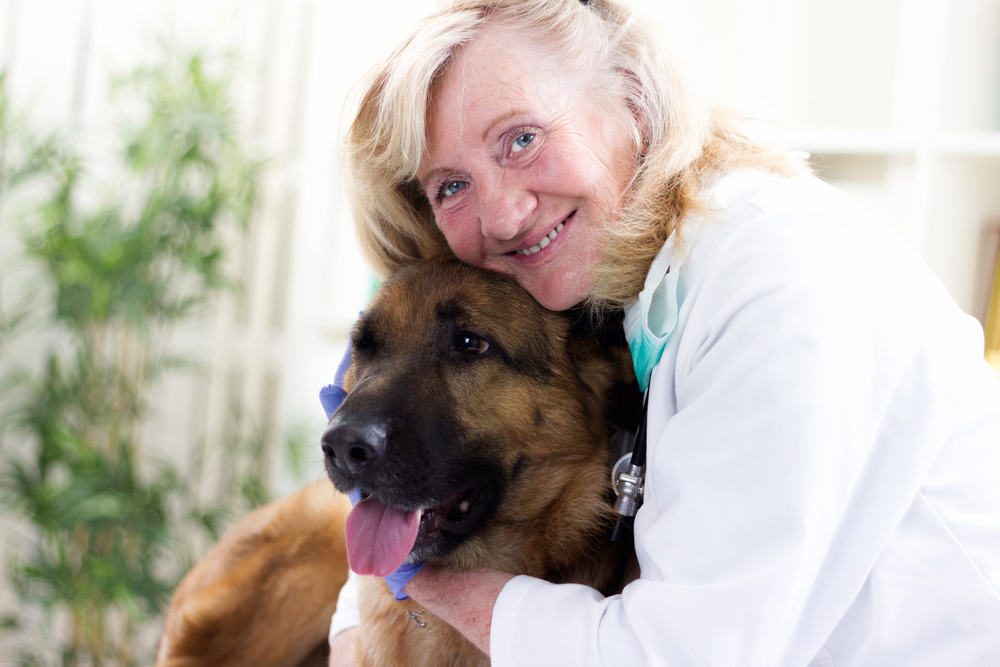When your dog is in pain, his entire life changes. And while we often think of old dogs having joint problems, the truth is any dog can experience joint discomfort that can affect his quality of life.
 Some dog breeds are more prone to joint problems:
Some dog breeds are more prone to joint problems:
- Newfoundlands have a high incidence of cruciate ligament disease
- Rottweilers commonly have knee and ankle problems
- Bernese Mountain dogs are prone to elbow dysplasia
- Many breeds are at higher risk for arthritis like German Shepherds, Golden Retrievers, Labrador Retrievers, Dachshunds, Mastiffs, Great Danes, and Old English Sheep Dogs
- Any dog that is a large breed and/or overweight is at a significant risk for joint problems as well
How Joint Problems Impact Your Dog
If you’ve ever had a joint injury or arthritis, you know how painful joint conditions can be. Moving hurts, not moving hurts, and in general it’s just pure misery.
Sleeping
When your dog has joint problems, he isn’t going to sleep well and that can lead to grouchiness, irritability, stress, chewing and licking, and sometimes isolation. He may try to hole up somewhere in the house alone to find some rest and comfort away from the family. He may also do things that are uncharacteristic of his personality like chew furniture out of frustration, snap at the kids, or refuse to go for walks.
Eating
Pain can also affect your dog’s appetite. Some dogs tend to overeat when in pain because eating just feels good when nothing else does. Others may show little interest in food and drop weight for what seems like an unexplained reason. Inflammation in the joints can stir up the autoimmune system and lead to poor digestion, diarrhea, gas, and weight gain.
Playing
One of the biggest impacts of joint problems is in the exercise habits of your dog. A dog who once loved to play fetch may now just watch the ball land with no attempt to chase after it. Long walks may become shorter and shorter with you resorting to carrying your dog home partway. While most dog owners know exercise is crucial for dogs with arthritis, it can be difficult to convince your dog to cooperate if he’s in pain. Dogs with with joint disorders like dysplasia can actually make the condition worse if the joint becomes damaged through what we would consider normal activity, making it hard to know how much to push your dog to exercise. There’s nothing worse than encouraging your dog to walk a little farther for his health only to see him limp home from the pain or worse yet, a damaged ligament or joint.
Joint pain interferes with your dog just being a dog. But there are things you can do as a pet parent to help him get his doggy-ness back.
How to Help a Dog with Joint Problems
- First, be sure to seek the advice of your veterinarian. Take your dog in for a thorough examination and take time to talk to your veterinarian about what the best course of treatment is for your dog. Every dog is unique, and blanket treatments are never better than individualized care.
- Change his exercise routine to frequent short bursts of exercise. Ask him to walk with you to the next room every hour to help relieve pain from arthritis.
- Watch his weight. An overweight dog is a miserable dog, especially if he has joint problems. It is crucial to keep him active, strong, and at an ideal weight.
- If your dog will allow it, and most will, learn how to massage his sore muscles and joints to help relieve pain.
- You can also provide some relief from joint pain with moist heat applications. Commercial moist heat packs are available or make your own with a damp towel placed in the microwave for a few seconds to heat it up. Just be sure to test the temperature before using it on your dog and remove it after 10 minutes to avoid triggering a protection response from his body. Any heat or ice left on for too long can lead to damage if the body believes it must protect itself from the prolonged temperature change.
- Talk to your veterinarian about using essential oils on your dog. Some high-quality oils, like Frankincense, Peppermint, and Helichrysum have been shown to help arthritis pain in humans, and many holistic and naturopathic veterinarians use essential oils to treat joint disorders and pain in dogs.
- Examine his diet closely. Because most joint disorders result in arthritis, feeding your dog a low-carb diet free from processed foods is best. Carbohydrates and processed foods are known to contribute to inflammation in the body.
- Supplement his body. Supplements designed to support joint health are essential for dogs with a high risk for joint problems as well as those experiencing joint pain. Cannanine™ Advanced 9-in-1 Hip & Joint Chews with Broad Spectrum Hemp can help protect your dog’s joints and provide him with the natural, healing substances he needs to live a healthy life.
Joint health is an important part of your dog’s life. Proactive care, comprehensive treatments, and lots of love and care will help your dog live a full and happy life.



